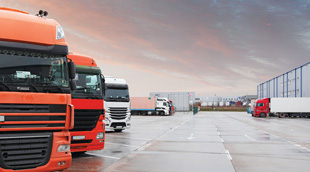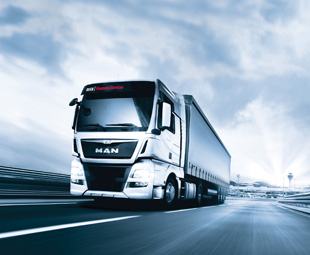The cost of cutting costs

With many financial experts predicting a stagnant economy in 2016, we ask what fleet managers should look out for when buying and insuring vehicles, and what hidden costs might be lurking in the year ahead
The answer to this question would seem to be multifaceted. David Molapo, head of Standard Bank Fleet Management, suggests it’s a case of weighing up the short- and long-term benefits.
“Investing in a more efficient fleet now will mean there will be more cash available for expansion later, but the urgent needs of an expanding business makes it tempting to postpone such investments, and to keep on limping forward with a costly fleet,” he says.
He suggests that, to keep fleet costs in check, fleet managers must keep to timely vehicle maintenance and replacement schedules. “The temptation to postpone the replacement, or even a much-needed major service, of an old workhorse before it becomes too expensive, can be very strong in a small to medium enterprise when cash is in short supply.
 “These are not savings; they are tantamount to pawning your vehicles for very expensive short-term cash,” he adds.
“These are not savings; they are tantamount to pawning your vehicles for very expensive short-term cash,” he adds.
These are strong words, but what does the finance house suggest fleet managers do, practically, to bring costs down. The first thing is to look out for hidden costs, not only when buying, but throughout the vehicle lifecycle.
When purchasing vehicles, consider the maintenance options available to you (most new vehicles will come with extensive original equipment manufacturer back-up). “As a business owner you may be tempted to purchase second-hand vehicles to cut costs. These vehicles might cost you more in the long run, however, due to increasing vehicle downtime for maintenance and repairs,” Standard Bank notes.
“Consider implementing a telematics system across your fleet, which includes predictive maintenance software that can forewarn you about potential maintenance issues.”
There is also the issue of carbon tax, which was announced by the minister of finance in the 2015 budget speech and published for public comment during November 2015.
The National Treasury noted at the time of publication of the Draft Carbon Tax Bill for public comment: “The carbon tax seeks to price carbon by obliging the polluter to internalise the external costs of emissions. The carbon tax aims to change the behaviour of firms, incentivising them to shift towards cleaner technology when replacing/renewing machinery, technology or processes.”
In the case of emissions from the use of petrol and diesel, the carbon tax will be added to the current fuel tax regime (meaning a further increase in fuel prices). Molapo suggests, however, that this additional tax “does not seem to keep fleet managers awake at night”.
 “All indications are that the carbon tax is simply seen as an additional tax by the industry, and will do little to pique interest, or change vehicle preferences. This may change one day when government starts introducing carbon levies based on actual vehicle performance, in line with some European practices,” he notes.
“All indications are that the carbon tax is simply seen as an additional tax by the industry, and will do little to pique interest, or change vehicle preferences. This may change one day when government starts introducing carbon levies based on actual vehicle performance, in line with some European practices,” he notes.
With a lack of skilled drivers a longstanding concern of the local transport industry, proper driver training is imperative. “Drivers who lack the right skills to drive your fleet will rack up costs for your business from accidents or incorrect handling of your vehicles.”
On that point, being able to fix a vehicle that has been damaged without incurring additional costs is vital. It is advised: “Choosing not to take out insurance could sink your business if one of your vehicles is involved in an accident. To prepare for any eventuality you should not only consider vehicle insurance, but also public liability insurance.”
Sid Beeton, transport division manager, One Financial Services, delves deeper into the topic. “There has not been the usual ‘parking off’ of fleets after mid December. I can only assume that cash flow is so tight that the luxury of parking off is no longer viable. The New Year also started with more defaults on debit orders and we have seen some vehicles (particularly trailers) that are not in a good state of repair,” he notes.
Like Molapo, Beeton warns against letting maintenance slip during tough times. “This is false economy, as claims will be rejected if the vehicle combination is found to be in an unroadworthy condition.”
Nonetheless, Beeton reiterates that insurance is something that needs to be retained in tough times. “Transport is a high-risk undertaking; for vehicles that are financed, full comprehensive insurance cover is non-negotiable.
 What should be done if the company’s bank account is severely under pressure? “If the transport client is struggling to meet the monthly insurance premium, they can consider reducing cover on older vehicles to more limited cover; such as Liability, Fire and Theft cover (the major financial exposures). This should result in a saving of 40 percent over comprehensive cover.”
What should be done if the company’s bank account is severely under pressure? “If the transport client is struggling to meet the monthly insurance premium, they can consider reducing cover on older vehicles to more limited cover; such as Liability, Fire and Theft cover (the major financial exposures). This should result in a saving of 40 percent over comprehensive cover.”
Beeton suggests that cover options will be more flexible with older vehicles, as these are less likely to have outstanding finance. “The minimum requirement should be Third Party Liability insurance as, old or new, the likelihood of an accident with another road user is the same,” he says.
Happily, insurance providers, such as One, offer more than just insurance; they provide a “transport solution” to help operators manage costs.
“As the market is shrinking, or stagnant, at best, competition for business tends to result in a rate-cutting war,” Beeton explains. “With inflation of imported truck parts and spares, the industry faces major challenges. We add value by entering into joint ventures with product suppliers, so that we can offer subsidies and savings on risk management devices, such as tracking and 24-hour camera options, backed by a full-time bureau.
“We look to offer savings relating to fleet management, as the real savings come from reducing accident ratios,” he concludes.
Published by
Focus on Transport
focusmagsa




